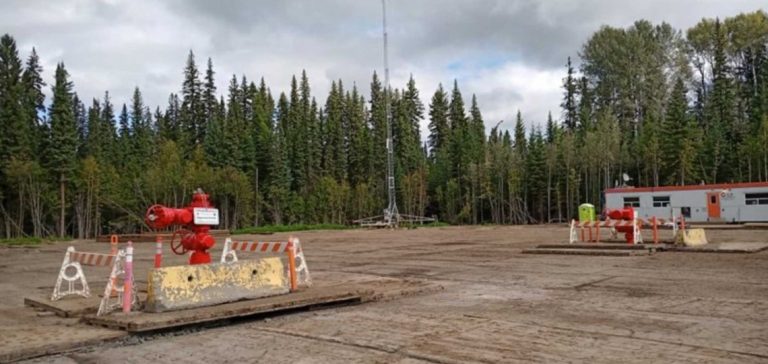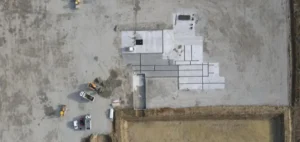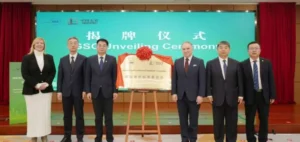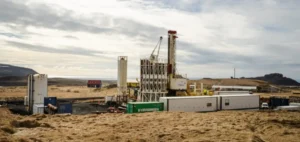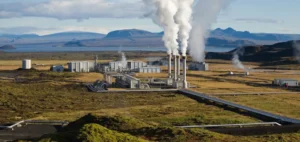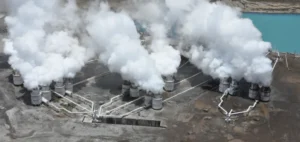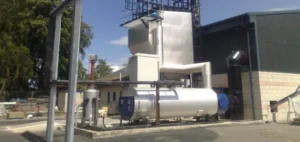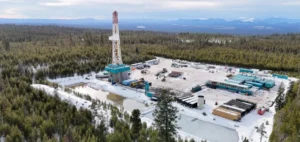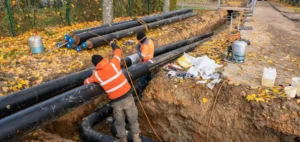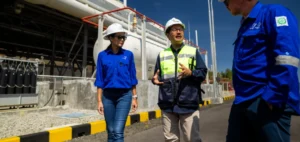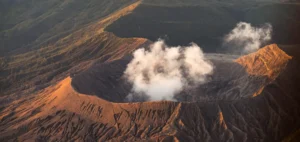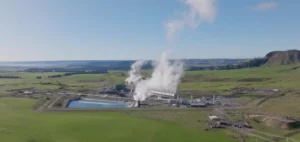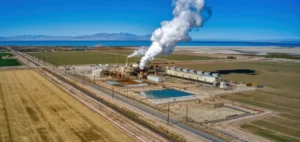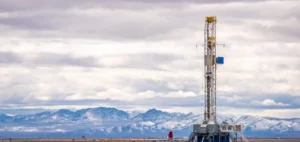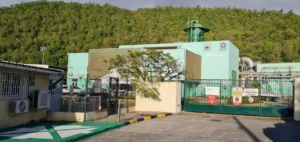The Tu Deh-Kah geothermal project, located at the former Clarke Lake Gas Field near Fort Nelson, British Columbia, represents a key investment in the transition towards renewable energies. Initiated by the Fort Nelson First Nation (FNFN), this initiative aims to provide between 7 and 15 megawatts electric (MWe) of energy, potentially sufficient to power the entire Fort Nelson region. Currently in phase four out of seven, the project is expected to become operational by 2027.
Production Capacity and Technology
The Tu Deh-Kah project initially targets a production capacity of 7 MWe, with a potential expansion to 15 MWe. The technology used is based on a binary cycle, suitable for a reservoir temperature of 114-120 °C, ensuring efficient conversion of geothermal brine into electricity without pollutant emissions.
The initial drilling phases were completed in 2021, followed by successful tests in 2022, confirming a flow rate of 70 to 80 liters per second of hot brine. A 30-day pump test validated the geothermal resource, meeting industry standards for resource characterization. This confirmation allows the project team to proceed with final design and permitting, paving the way for the construction phase scheduled for 2024(Barkley Project Group).
Financing and Government Support
The project’s financing benefits from substantial support, including 40.5 million Canadian dollars from federal and provincial grants, with a total planned capital expenditure of approximately 170 million Canadian dollars. This funding covers not only drilling and resource testing but also infrastructure development and future expansions(FNMPC Industry Conference).
Job Opportunities and Skill Development
As Canada’s first 100% Indigenous-owned geothermal initiative, the Tu Deh-Kah project positions itself as a model for community-led clean energy projects. It aims to create sustainable economic growth and reduce dependency on fossil fuels. The project is expected to generate numerous job opportunities for local community members, many of whom have experience in the oil and gas sector. By leveraging these transferable skills, the project will also serve as a skill development hub for transitioning workers from traditional energy industries to renewables(Barkley Project Group).
Strategic Impact on Energy Security
Strategically, the Tu Deh-Kah project is designed to replace one of the region’s largest sources of CO2 emissions, the North River Mid Stream gas plant, which currently powers Fort Nelson. This transition will have a significant environmental impact by reducing greenhouse gas emissions and enhancing regional energy security. The project’s success could catalyze further geothermal developments across Canada, offering a model for other Indigenous communities(West Coast Climate Action Network).
Local Economic Development
Beyond power generation, the project envisions using geothermal energy for other applications, such as heating commercial greenhouses, supporting aquaculture, and potentially establishing spa facilities or other eco-tourism centers. This diversification aligns with the community’s broader economic strategy to achieve food and energy security while also enhancing local economic resilience(West Coast Climate Action Network).
Financial Challenges and Opportunities
The main challenges for the Tu Deh-Kah project are related to financing and the high initial costs associated with drilling and infrastructure setup. Geothermal development in Canada remains relatively unexplored, partly due to the high capital expenditure required. However, leveraging existing data from the depleted Clarke Lake Gas Field has allowed the project to reduce some initial drilling costs, providing a competitive edge in this emerging sector.
Once operational, the Tu Deh-Kah project will not only contribute to local energy independence but also serve as a case study for integrating Indigenous leadership into clean energy transitions across Canada(FNMPC Industry Conference).


